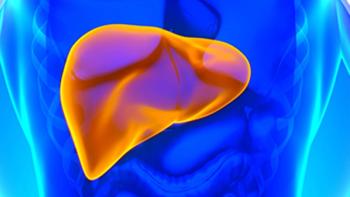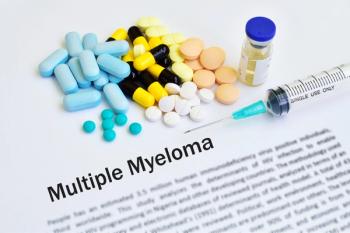
Sunvozertinib received FDA priority review for advanced EGFR exon 20 insertion-positive non-small cell lung cancer progressing after chemotherapy.

Sunvozertinib received FDA priority review for advanced EGFR exon 20 insertion-positive non-small cell lung cancer progressing after chemotherapy.

In patients with RRMM, subcutaneous isatuximab plus Pd resulted in a non-inferior objective response rate (ORR) and comparable pre-dose concentrations at steady state compared to IV isatuximab plus Pd.

Phase 1 data indicate invikafusp alfa's potential as a precision cancer immunotherapeutic in solid tumors that have progressed after PD-(L)1 therapy.

Ropeginterferon alfa-2b showed superior efficacy over anagrelide in the SURPASS-ET trial for essential thrombocythemia, with higher durable response rates and greater JAK2 allele burden reduction.

An oncology nurse practitioner's transition from private practice to cancer research offers insights for nurses exploring new career paths within oncology.

Amivantamab and lazertinib improved overall survival compared to osimertinib as a first-line treatment for advanced or metastatic EGFR-mutant NSCLC.

While the phase 2 trial did not meet its primary endpoint, it demonstrated that SBRT plus concurrent radiotherapy yielded better results than those observed in previous studies.

Updated results from the phase 3 CheckMate-8HW trial continue to show fewer severe (grade 3/4) side effects with nivolumab/ipilimumab compared to chemotherapy.

Analysis of two trials indicates psilocybin-assisted psychotherapy may benefit the mental health of patients with cancer.

The SU2C-SARC032 study demonstrated that pembrolizumab combined with radiotherapy and surgery was well tolerated, with infrequent surgical complications.

A new drug application has been submitted to the FDA for dordaviprone to treat recurrent H3K27M-mutant diffuse glioma.

A combination of avutometinib and defactinib has been granted priority review by the FDA for the treatment of KRAS-mutant recurrent low-grade serous ovarian cancer.

Beth Sandy, MSN, CRNP, FAPO, led a discussion on EGFR-mutated non-small cell lung cancer, focusing on targeted therapies for those with advanced, treatment-naïve disease.

Durvalumab improved progression-free survival in unresectable NSCLC patients without progression post-chemoradiotherapy, reducing disease progression risk by 25% compared to placebo.

Pembrolizumab plus chemotherapy significantly improved 4-year OS and EFS in resectable early-stage NSCLC compared to chemotherapy alone.

The antibody-drug conjugate showed a higher objective response rate but failed to meet the primary OS endpoint in patients with pretreated advanced urothelial carcinoma.

Zongertinib achieved a 71% objective response rate and 93% disease control rate in patients with HER2-mutant NSCLC at a dose of 120 mg.

"When most people hear the words palliative care, they immediately think about hospice or end-of-life care. This includes most medical professionals."

The phase 3 KEYNOTE-826 trial met its dual primary end points of overall and progression-free survival in patients with cervical cancer.

Oncology nurses can educate patients about the potential indications for oncolytic virus therapy and connect them to available clinical trial opportunities.

Lenvatinib showed a median PFS of 5.4 months in advanced HCC patients following treatment with atezolizumab/bevacizumab, meeting the primary endpoint.

Niraparib plus dostarlimab with platinum-based chemotherapy achieved superior PFS, meeting the primary end point of the phase 3 FIRST-ENGOT-OV44 trial.

Nivolumab and hyaluronidase-nvhy (Opdivo Qvantig) was approved by the FDA for subcutaneous injection across approved solid tumor indications for nivolumab (Opdivo).

The FDA approved tislelizumab plus chemotherapy for the first-line treatment of unresectable or metastatic gastric or GEJ adenocarcinoma.

Oncology Nursing News presents its top 5 articles covering the many advances made in cancer this year.

Lunresertib plus camonsertib showed promising efficacy in advanced endometrial and platinum-resistant ovarian cancers, with ORRs of 25.9% and 37.5%, respectively.

Heather Greene, MSN, FNP, AOCNP, shares insight into the use of erdafitinib in patients with locally advanced or metastatic urothelial carcinoma.

The haplotype is more common in patients achieving a complete hematologic response, indicating its potential as a treatment response biomarker.

Patients treated with ide-cel, Abecma for relapsed/refractory multiple myeloma affecting the central nervous system had similar outcomes to matched patients with non-CNS multiple myeloma.

Oncology nurses can educate patients on the implications of these findings